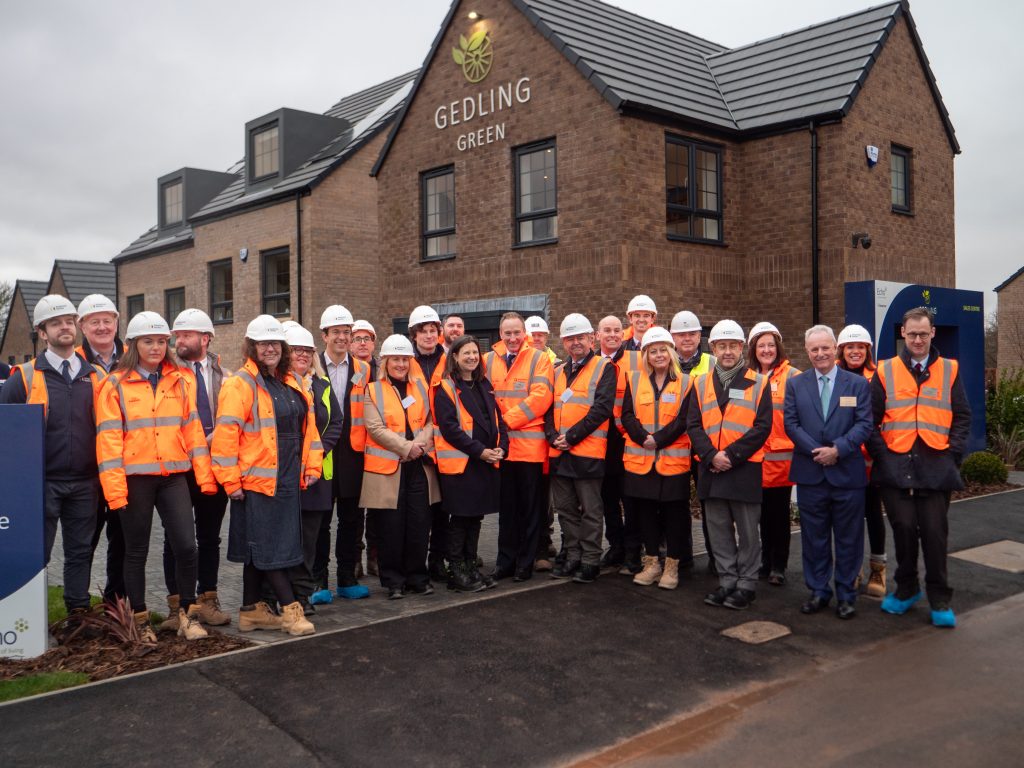Some of the first homes built to a new pioneering energy-efficient standard have been unveiled in Nottinghamshire.
The Keepmoat housing development, built to the indicative version of the Future Homes Standard, has been given the seal of approval by the new Housing and Communities Minister.
The collection of 33 homes use air source heat pumps for their hot water and heating, have solar panels, electric vehicle charging points and increased insulation compared to homes built to existing standards.
The homes are also fully electrified, meaning they will be zero-carbon in use once the electricity grid decarbonises.
Following her visit at the Gedling Green development, located at the site of the former Gedling Colliery, Minister for Housing and Communities Baroness Penn said: “It was fantastic to visit the Gedling Green development in Nottingham and see first-hand the future of energy efficient homes.
“The Future Homes Standard will not only make homes more energy efficient, reducing energy bills compared to a typical home, but crucially will reduce carbon emissions, supporting us in our goal to reach Net Zero by 2050.”
Tim Beale, CEO at Keepmoat added: “We were thrilled to host Baroness Penn at our Gedling Green development in Nottingham where all the homes have been built to meet the requirements of the Future Homes Standard ahead of its introduction in 2025. Gedling Green is the first development in the UK to offer homes built to this specification for sale on the open market.
“The Sales Centre at this development includes an area dedicated to educating customers about the key features and technologies. This will support our customers in achieving a significant reduction in energy bills compared to a typical new home built to the previous regulatory standards.”
From 2025, the Future Homes Standard, currently being consulted on by the Government, will become mandatory and ensure that new homes produce, on average, upwards of 75% less CO2 emissions than those built to the 2013 standards.
This will ensure new homes are more energy efficient, leading to a reduction in energy bills , compared to typical existing homes, and help the Government meets its Net Zero target.
From 2025, new homes will be future proofed with low carbon heating and very high fabric standards and will be ‘zero-carbon ready’, meaning no further work will be required for them to become zero-carbon when the electricity grid decarbonises.


